By: Jan-Lukas Menzel, Stellenbosch University, South Africa; Carolynn Harris, Dartmouth College, New Hampshire; and Gabriela Roldan, Gateway Antarctica, University of Canterbury in New Zealand
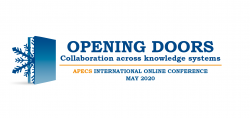
The Association of Polar Early Career Scientists (APECS) is a fast-growing international and interdisciplinary organization for early career researchers (ECRs) working in the polar regions and the wider cryosphere. We have more than 3500+ members representing 73 countries, and 28 National Committees. Our goal is to provide community and high-quality professional development, resources, and opportunities to our members. Everyone with an interest in the cryosphere is invited to join; our members include undergraduate and graduate students, postdoctoral researchers, early faculty members, young professionals, and educators. APECS was founded during the International Polar Year of 2007–2009; in over a decade we have established strategic partnerships with the international polar community and created numerous innovative ways to share research across disciplinary boundaries to reach a wide international audience.
Since 2014, APECS has organized an annual Online International Conference to showcase the research of polar ECR and alpine scientists, educators, and communicators. This is an inclusive academic and educational event and there is no abstract submission fee or attendance costs. In 2020, the theme for the 6th Annual Conference was, "Opening Doors: Collaboration Across Knowledge Systems."The conference, convened on 19 May 2020, promoted collaboration and knowledge exchange between multidisciplinary ECRs, science communicators, educators, and local community members in polar and alpine regions. We encouraged collaborative presentations that paired multiple knowledge systems to better understand present and future challenges to polar and alpine regions.
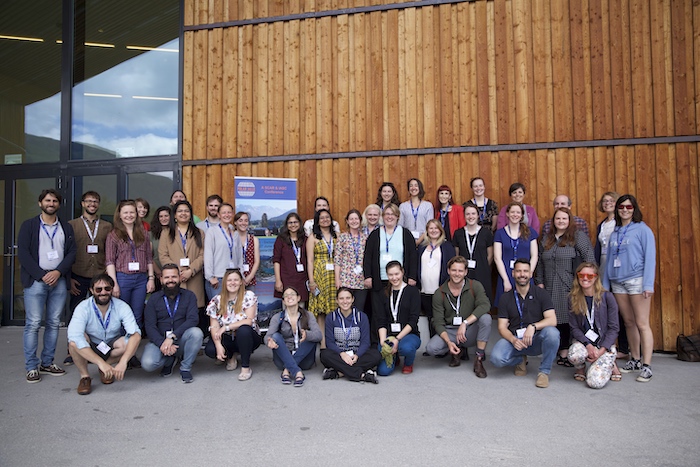
The 2020 Conference comprised five sessions, with three keynote addresses and 50 presentations that occurred around the clock, which allowed people in every time zone to attend a live session. The conference was attended live by over 400 people from 46 countries. The keynote speakers inspired ECRs with their addresses; Dr. Jose Xavier emphasized on the need and power of linking scientific research with education and policy making; Dr. Renuka Badhe explored career paths outside academia; and Mia Otokiak highlighted the importance of incorporating traditional knowledge into decision-making. The conference presentations also showcased the importance of engaging the general public in decision-making, and how collaborative approaches are paramount for building consensus in polar matters. A memorable moment was the final presentation by Louise Owen, a visual artist who took the audience on a virtual tour of her painting studio to illustrate the impact that arts can have on society and how it can assist to change perspectives on difficult topics.
The success of the Online Conference is owed to the work of dedicated and enthusiastic volunteers and presenters. The APECS Online Conference Organizing Committee, composed by members of the APECS Council and Executive Committee, worked for over eight months to plan this event and were joined by 80 community members who volunteered their time to chair sessions, provide technical support to presenters, and judge presentations. This event also provided the opportunity for ECR career development, including training in the organization and delivery of an international conference using digital platforms.
Since its inception, the APECS Online Conference has grown in the number of volunteers, speakers, and public attending the event, as well as in the quality and multifaceted topics of the presentations. The conference's growing success is reflected in the support received from polar organizations to award prizes intended to support ECRs in future professional development. We continue to fine-tune our program to meet the needs and interests of the wider polar and alpine science community. For instance, in 2015 we introduced a 5-minute flash presentation in addition to traditional oral presentations. In the future, we hope to enhance the networking and community-building that occurs in an in-person conference by exploring the extent of the communication platform, such as supporting parallel discussions to the conference, breakout chat rooms, and others.
Please visit the APECS webpage to stay up to date with polar and alpine educational and professional news and events. We invite you to join APECS and be part of this international and multidisciplinary community of polar and alpine early career scientists.
The entire 6th Annual APECS Online International Conference was recorded and is available on the APECS Vimeo Channel.
A list of abstracts from the 6th APECS International Conference is available here.
About the Authors
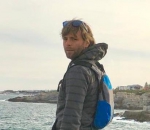 janukas [at] bizkaia.eu (Jan-Lukas Menzel) is a marine biogeochemist working as a postdoctoral researcher at Stellenbosch University in South Africa. Jan-Lukas has worked from polar to tropical oceans and is specialized in marine biogeochemical cycles. He is an APECS International Council member, the General Secretary of the Spanish Association of Researchers in South Africa, and chair of the 6th APECS International Online Conference Organizing Committee.
janukas [at] bizkaia.eu (Jan-Lukas Menzel) is a marine biogeochemist working as a postdoctoral researcher at Stellenbosch University in South Africa. Jan-Lukas has worked from polar to tropical oceans and is specialized in marine biogeochemical cycles. He is an APECS International Council member, the General Secretary of the Spanish Association of Researchers in South Africa, and chair of the 6th APECS International Online Conference Organizing Committee.
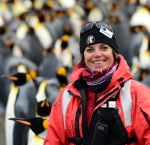 antarcticidentity [at] gmail.com (Gabriela Roldan) is a social scientist working as a specialist researcher at Gateway Antarctica, University of Canterbury in New Zealand. Gabriela's research interests include Antarctic governance, geopolitics, and polar tourism. She is a dedicated polar educator, developing education programs for schools in her native Argentina and New Zealand. Gabriela has been involved with the APECS leadership since 2016, and represents the association in the Scientific Committee on Antarctic Research's Capacity Building, Education and Training Committee (SCAR CBET). Every summer, Gabriela works as a tour guide in Antarctica.
antarcticidentity [at] gmail.com (Gabriela Roldan) is a social scientist working as a specialist researcher at Gateway Antarctica, University of Canterbury in New Zealand. Gabriela's research interests include Antarctic governance, geopolitics, and polar tourism. She is a dedicated polar educator, developing education programs for schools in her native Argentina and New Zealand. Gabriela has been involved with the APECS leadership since 2016, and represents the association in the Scientific Committee on Antarctic Research's Capacity Building, Education and Training Committee (SCAR CBET). Every summer, Gabriela works as a tour guide in Antarctica.
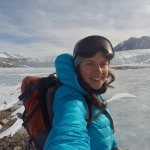 carolynn.m.harris [at] gmail.com (Carolynn Harris) is a PhD student at Dartmouth College in the USA, where she studies geobiology. Carolynn has studied polar regions since 2011 and has contributed to field research in the Arctic and Antarctica. Carolynn is a Vice President of APECS and an Outreach Coordinator for the MOSAiC Expedition—a year-long expedition in the Central Arctic Ocean to study linked climate systems.
carolynn.m.harris [at] gmail.com (Carolynn Harris) is a PhD student at Dartmouth College in the USA, where she studies geobiology. Carolynn has studied polar regions since 2011 and has contributed to field research in the Arctic and Antarctica. Carolynn is a Vice President of APECS and an Outreach Coordinator for the MOSAiC Expedition—a year-long expedition in the Central Arctic Ocean to study linked climate systems.
